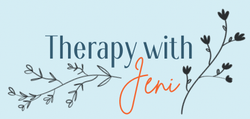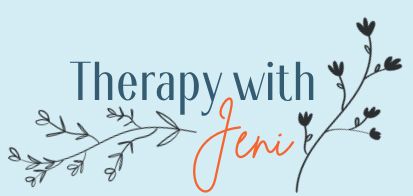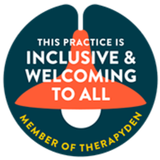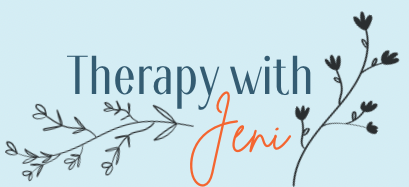
Welcome To My Practice
About Me
Hi! I’m Jeni Saaraswath, a Cincinnati-based somatic therapist and complex trauma specialist. I deeply believe in the healing power of connection. When we are wounded in relationships, we must heal in relationships—and the therapeutic bond provides the safety and connection needed to begin that journey. As someone who has sat on both sides of the therapy chair, I understand how vital it is to feel safe when sharing your inner world. My mission is to create a space where you can explore, grow, and heal with trust and accountability.
I am a Licensed Professional Counselor in Ohio (License C.2103284) and offer both in-person and virtual mental health services in Ohio. I am supervised by Dalenea Giusti, MA, LPCC-S, DARTT (License E.1700366-SUPV). I earned my master’s degree in Clinical Mental Health Counseling from Northern Kentucky University in 2020, and my love of lifelong learning has driven me to pursue extensive post-graduate training. My specialized expertise includes perinatal mental health, post-abortion support, somatic therapy, couples therapy, and treatment of developmental and relational trauma AKA complex trauma.
My personal experience of pregnancy and postpartum was both complex and traumatic, revealing a significant gap in mental health care for perinatal clients. I began my practice focusing on this population, completing Postpartum Support International’s training to support the full spectrum of perinatal mental health challenges, including fertility struggles, pregnancy loss, traumatic birth, and postpartum mental health. I also trained in the Exhale ProVoice Philosophy, a client-centered approach to processing the emotional complexities of abortion while remaining free of political and moral judgment.
As my work evolved, I recognized that parenting often stirs unresolved childhood wounds. To better support clients grappling with these challenges, I completed certification through the Healing Our Core Issues Institute, specializing in developmental and relational trauma. This training incorporates mindfulness, polyvagal theory, somatic practices, and attachment science. Additionally, I am currently enrolled in Somatic Experiencing International’s three-year training program and have also completed Gottman Level 1 training for relationship therapy.
Now what you really want to know about me! I’m a Libra, a toddler mom, and married to an Indian immigrant. Yes I had a vibrant Indian wedding in India! My lived experience of childhood trauma, perinatal anxiety, and traumatic birth informs my compassionate approach to therapy. Outside of my work, I enjoy knitting, gardening, hiking, and soaking up nature—an inspiration you’ll notice in both my office décor and this website design.
Services Offered:



About My Clients
Does This Sound Like You?
You struggle with intense emotions that seem to explode out of nowhere—moments of anger, sadness, or shame that feel overwhelming and leave you wondering, What just happened? It can feel like someone else has taken over your body, or like you’re a child again having a meltdown. Afterward, you’re left feeling confused, helpless, and ashamed, questioning why you can’t seem to control your reactions.
You may worry that you’re the only one struggling with emotional regulation, thinking, I should have this figured out by now. Perhaps you’ve even convinced yourself that you’re broken or defective. The shame after an outburst can be crippling, and you may fear that your friends, loved ones, or even your children will one day leave you because you’re “too much” or “too needy.”
While you focus on others’ reactions to you, your own needs often get pushed aside. Maybe you’ve been told you’re selfish for prioritizing yourself, or perhaps you struggle to identify what you need in the first place. You might find yourself thinking, If I want things done right, I have to do them myself, or I can’t count on anyone else to help me. Over time, this self-reliance can leave you feeling isolated, numb, or disconnected—from yourself, from others, and from the world around you.
If you’ve been depressed or anxious for “as long as you can remember,” these feelings might seem like just another part of who you are. But they don’t have to be.
Childhood Trauma and Its Lasting Impact
If this sounds familiar, it may be a sign of unresolved childhood trauma. Trauma doesn’t always come from overtly harmful or abusive experiences—it can also come from what didn’t happen. Even loving, well-intentioned parents can unintentionally neglect emotional needs, often because they were never taught how to meet them or because their child’s emotions triggered their own unresolved pain.
It can be confusing to acknowledge feelings of neglect when your parents provided for your physical needs—food, shelter, education—but left your emotional needs unmet. This emotional neglect might leave you feeling as though you’re “too much” or that your emotions are a burden. It can also make it hard to connect with your body, your emotions, and the people around you.
The way I define trauma is simple: it’s anything less than nurturing. This definition includes a broad spectrum of experiences, from the events that did happen, to the support and connection that didn’t.
You Don’t Have to Do This Alone
If you see yourself in this description, know that you’re not broken or defective—and you don’t have to figure it all out on your own. Healing is possible, and it begins with creating a space where your emotions and needs are seen, heard, and valued.

My Approach to Helping
I specialize in helping clients heal from traumatic experiences through an integrative therapeutic approach that combines Somatic Experiencing®, attachment-based therapy, and psychodynamic principles. This method focuses on the mind-body connection, mindfulness, and understanding the impact of early relationships on current behaviors and emotions.
In our work together, we will:
- Create a Safe and Affirming Space: I am committed to providing a secure and supportive environment where you can openly share your inner experiences.
- Explore Early Experiences: We will delve into formative events and relationships that continue to influence your life, aiming to understand and transform their impact.
- Enhance Body Awareness: By attuning to your body's sensations and responses, we will develop awareness of natural regulation and self-soothing skills to manage emotional reactivity.
- Break Cycles of Intergenerational Trauma: Through insight and mindful practices, we will work to disrupt patterns of trauma that may have been passed down through generations.
I believe that through mindful attunement to our bodies and addressing our emotional needs, we all have the capacity to alleviate suffering, heal, and thrive.
I offer specialized support in the following areas:
Childhood Trauma and Complex Trauma
Early disruptions in caregiver relationships can lead to attachment disorders, affecting mood, behavior, and social connections. Therapy focuses on healing these wounds by fostering secure attachments and healthy relational patterns.
Trauma and PTSD
Post-traumatic stress disorder (PTSD) can develop after experiencing or witnessing traumatic events. Therapeutic approaches focus on processing trauma, reducing symptoms, and restoring a sense of safety and control.
Anxiety
Anxiety involves feelings of fear, dread, and uneasiness. Therapeutic interventions aim to identify triggers, develop coping mechanisms, and reduce symptoms to improve daily functioning.
Perinatal Mental Health
Navigating the significant changes of parenthood can be challenging. The therapy room is a place to explore feelings, learn coping skills, and develop strategies to manage stress that comes with this life transition. This approach also addresses adjustment issues, helping individuals adapt to their new life.
Meditation & Mindfulness
Incorporating meditation and mindfulness practices can enhance mental health by promoting present-moment awareness and reducing stress. These techniques support emotional regulation and overall well-being.
Women's Issues
Therapy provides a safe space to explore topics such as gender discrimination, body image, reproductive health, and other concerns unique to women's experiences. Addressing these issues can lead to empowerment and improved mental health.
I offer specialized support in the following areas:
Childhood Trauma and Complex Trauma
Early disruptions in caregiver relationships can lead to attachment disorders, affecting mood, behavior, and social connections. Therapy focuses on healing these wounds by fostering secure attachments and healthy relational patterns.
Trauma and PTSD
Post-traumatic stress disorder (PTSD) can develop after experiencing or witnessing traumatic events. Therapeutic approaches focus on processing trauma, reducing symptoms, and restoring a sense of safety and control.
Anxiety
Anxiety involves feelings of fear, dread, and uneasiness. Therapeutic interventions aim to identify triggers, develop coping mechanisms, and reduce symptoms to improve daily functioning.
Meditation & Mindfulness
Describe the item or answer the question so that site visitors who are interested get more information. You can emphasize this text with bullets, italics or bold, and add links.Stress
Describe the item or answer the question so that site visitors who are interested get more information. You can emphasize this text with bullets, italics or bold, and add links.Trauma and PTSD
Describe the item or answer the question so that site visitors who are interested get more information. You can emphasize this text with bullets, italics or bold, and add links.Women's Issues
Describe the item or answer the question so that site visitors who are interested get more information. You can emphasize this text with bullets, italics or bold, and add links.
Perinatal Mental Health
Navigating the significant changes of parenthood can be challenging. The therapy room is a place to explore feelings, learn coping skills, and develop strategies to manage stress that comes with this life transition. This approach also addresses adjustment issues, helping individuals adapt to their new life.
Meditation & Mindfulness
Incorporating meditation and mindfulness practices can enhance mental health by promoting present-moment awareness and reducing stress. These techniques support emotional regulation and overall well-being.
Women's Issues
Therapy provides a safe space to explore topics such as gender discrimination, body image, reproductive health, and other concerns unique to women's experiences. Addressing these issues can lead to empowerment and improved mental health.
Meditation & Mindfulness
Meditation and mindfulness practices may have a variety of health benefits and may help people improve the quality of their lives.
Stress
In psychology, stress is a feeling of emotional strain and pressure. Stress is a type of psychological pain. Small amounts of stress may be beneficial, as it can improve athletic performance, motivation, and reaction to the environment.
Trauma and PTSD
Post-traumatic stress disorder (PTSD) is a mental health condition that can develop after a person experiences or witnesses a traumatic event.
Women's Issues
Secondly, by honing in on women's issues, therapy can provide a safe and understanding space for individuals to explore topics that they may not feel comfortable discussing in other settings. This can include issues related to gender discrimination, body image, reproductive health, and more.

Types Of Therapy
Somatic Experiencing ®
This body-focused therapy addresses trauma by helping you become aware of bodily sensations and releasing stored tension, facilitating nervous system regulation and emotional healing
Healing Our Core Issues (HOCI)
Developed by Jan Bergstrom, LMHC, and Dr. Rick Butts, PhD, the HOCI model builds upon Pia Mellody's Post Induction Therapy (PIT). It integrates attachment theory, mindfulness, somatic experiencing, and polyvagal theory to address developmental and relational trauma. The model emphasizes that every child has inherent birthrights, and any unmet needs constitute trauma, as anything less than nurturing is considered traumatic.
Ego State Therapy
This approach explores different parts of the self, helping to resolve internal conflicts and promote integration.
Psychodynamic Therapy
Focusing on unconscious processes and early life experiences, this therapy aims to uncover and resolve deep-seated emotional issues.
Gottman Method Couples Therapy
Focusing on unconscious processes and early life experiences, this therapy aims to uncover and resolve deep-seated emotional issues..
Somatic Experiencing ®
Post Induction Therapy (PIT)
Healing Our Cre Issues (HOCI)
Ego State Therapy
Psychodynamic Therapy
Gottman Method Couples Therapy
Somatic Experiencing ®
Post Induction Therapy (PIT)
Healing Our Cre Issues (HOCI)
Ego State Therapy
Psychodynamic Therapy
Gottman Method Couples Therapy
Somatic Experiencing ®
This body-focused method addresses trauma by helping you become attuned to bodily sensations and complete thwarted survival responses, facilitating nervous system regulation and healing.
Eye Movement Desensitization and Reprocessing (EMDR)
This evidence-based therapy tool uses rapid eye movements and/or bilateral stimulation to process traumatic memories and reduce emotional distress felt while also integrating positive beliefs of self.
Healing Our Core Issues (HOCI)
Developed by Jan Bergstrom, LMHC, and Dr. Rick Butts, PhD, the HOCI model builds upon Pia Mellody's Post Induction Therapy (PIT). It integrates attachment theory, mindfulness, somatic experiencing, and polyvagal theory to address developmental and relational trauma. The model emphasizes that every child has inherent birthrights, and any unmet needs constitute trauma, as anything less than nurturing is considered traumatic.
Ego State Therapy
AKA parts work. This approach explores different parts of the self, helping to resolve internal conflicts and promote integration.
I practice an IFS-informed approach.
Psychodynamic Therapy
Focusing on unconscious processes and early life experiences, this therapy aims to uncover and resolve deep-seated emotional issues.
Gottman Method Couples Therapy
Research-based couples therapy focusing on connection, communication, conflict management, and shared meaning to build lasting relationships.
Somatic Experiencing ®
This body-focused therapy addresses trauma by helping you become aware of bodily sensations and releasing stored tension, facilitating nervous system regulation and emotional healing
Healing Our Core Issues (HOCI)
Developed by Jan Bergstrom, LMHC, and Dr. Rick Butts, PhD, the HOCI model builds upon Pia Mellody's Post Induction Therapy (PIT). It integrates attachment theory, mindfulness, somatic experiencing, and polyvagal theory to address developmental and relational trauma. The model emphasizes that every child has inherent birthrights, and any unmet needs constitute trauma, as anything less than nurturing is considered traumatic.
Ego State Therapy
This approach explores different parts of the self, helping to resolve internal conflicts and promote integration.
Psychodynamic Therapy
Focusing on unconscious processes and early life experiences, this therapy aims to uncover and resolve deep-seated emotional issues.
Gottman Method Couples Therapy
An evidence-based approach that enhances relationship dynamics through improved communication, conflict resolution, and emotional connection.
Somatic Experiencing ®
This body-focused therapy addresses trauma by helping you become aware of bodily sensations and releasing stored tension, facilitating nervous system regulation and emotional healing
Healing Our Core Issues (HOCI)
Developed by Jan Bergstrom, LMHC, and Dr. Rick Butts, PhD, the HOCI model builds upon Pia Mellody's Post Induction Therapy (PIT). It integrates attachment theory, mindfulness, somatic experiencing, and polyvagal theory to address developmental and relational trauma. The model emphasizes that every child has inherent birthrights, and any unmet needs constitute trauma, as anything less than nurturing is considered traumatic.
Ego State Therapy
This approach explores different parts of the self, helping to resolve internal conflicts and promote integration.
Psychodynamic Therapy
Focusing on unconscious processes and early life experiences, this therapy aims to uncover and resolve deep-seated emotional issues.
Gottman Method Couples Therapy
An evidence-based approach that enhances relationship dynamics through improved communication, conflict resolution, and emotional connection.
Somatic Experiencing ®
This body-focused therapy addresses trauma by helping you become aware of bodily sensations and releasing stored tension, facilitating nervous system regulation and emotional healing
Healing Our Core Issues (HOCI)
Developed by Jan Bergstrom, LMHC, and Dr. Rick Butts, PhD, the HOCI model builds upon Pia Mellody's Post Induction Therapy (PIT). It integrates attachment theory, mindfulness, somatic experiencing, and polyvagal theory to address developmental and relational trauma. The model emphasizes that every child has inherent birthrights, and any unmet needs constitute trauma, as anything less than nurturing is considered traumatic.
Ego State Therapy
This approach explores different parts of the self, helping to resolve internal conflicts and promote integration.
Psychodynamic Therapy
Focusing on unconscious processes and early life experiences, this therapy aims to uncover and resolve deep-seated emotional issues.
Gottman Method Couples Therapy
An evidence-based approach that enhances relationship dynamics through improved communication, conflict resolution, and emotional connection.
Somatic Experiencing ®
This body-focused therapy addresses trauma by helping you become aware of bodily sensations and releasing stored tension, facilitating nervous system regulation and emotional healing
Healing Our Core Issues (HOCI)
Developed by Jan Bergstrom, LMHC, and Dr. Rick Butts, PhD, the HOCI model builds upon Pia Mellody's Post Induction Therapy (PIT). It integrates attachment theory, mindfulness, somatic experiencing, and polyvagal theory to address developmental and relational trauma. The model emphasizes that every child has inherent birthrights, and any unmet needs constitute trauma, as anything less than nurturing is considered traumatic.
Ego State Therapy
This approach explores different parts of the self, helping to resolve internal conflicts and promote integration.
Psychodynamic Therapy
Focusing on unconscious processes and early life experiences, this therapy aims to uncover and resolve deep-seated emotional issues.
Gottman Method Couples Therapy
An evidence-based approach that enhances relationship dynamics through improved communication, conflict resolution, and emotional connection.

Types Of Therapy
Somatic Experiencing ®
This body-focused method addresses trauma by helping you become attuned to bodily sensations and complete thwarted survival responses, facilitating nervous system regulation and healing.
Eye Movement Desensitization and Reprocessing (EMDR)
This evidence-based therapy tool uses rapid eye movements and/or bilateral stimulation to process traumatic memories and reduce emotional distress felt while also integrating positive beliefs of self.
Healing Our Core Issues (HOCI)
Developed by Jan Bergstrom, LMHC, and Dr. Rick Butts, PhD, the HOCI model builds upon Pia Mellody's Post Induction Therapy (PIT). It integrates attachment theory, mindfulness, somatic experiencing, and polyvagal theory to address developmental and relational trauma. The model emphasizes that every child has inherent birthrights, and any unmet needs constitute trauma, as anything less than nurturing is considered traumatic.
Ego State Therapy
AKA parts work. This approach explores different parts of the self, helping to resolve internal conflicts and promote integration.
I practice an IFS-informed approach.
Psychodynamic Therapy
Focusing on unconscious processes and early life experiences, this therapy aims to uncover and resolve deep-seated emotional issues.
Gottman Method Couples Therapy
Research-based couples therapy focusing on connection, communication, conflict management, and shared meaning to build lasting relationships.
Services
Individual Therapy
In therapy, you will gain a deeper understanding of your emotions, behaviors through somatic experiencing, and move closer to your true, authentic self.
What to expect:
In-person and virtual therapy sessions are 55 minutes, and they are used as your safe place to explore any topic you may like.
Sessions can occur on a weekly or bi-weekly basis, or another interval depending on your individual needs, goals, and progress during treatment.
Group Therapy
Groups are spaces where people tackle mental health challenges together. Think of it like a support squad that helps you work through tough stuff. The goal? Breaking down isolation, building connections, and learning from each other's experiences.
You'll sit with folks dealing with similar issues - maybe anxiety, depression, or life transitions. I support and guide the conversation, but the real magic happens when group members share, listen, and support each other. It's about getting real, gaining perspective, and finding strategies to level up your mental game.
Couples Therapy
Your mental health and that of your partner influences not only your relationship dynamic, but every facet of your lives, from how you parent to how you bond and connect with yourselves and children. Whether you’re grappling with childhood trauma, attachment issues, communication issues, trust issues, infidelity, or more, our sessions provide a safe, compassionate, and nonjudgmental space for partners to heal and grow. We will work together to break free from destructive cycles, strengthen your relationship, and model healthy love for your children.
What to expect:
In-person and virtual couples counseling sessions are 55-minutes. In couples counseling, individual sessions with each partner are recommended to help gather individual background history. This is helpful to understand how each partner learned to be in relationship as we map your presenting relationship dynamics and work toward your relationship goals.
Telehealth
Video appointments are available and work just the same as in office sessions. Virtual therapy sessions are a great option if you want to eliminate travel time or if you fall sick. Clients are welcome to select a hybrid of virtual and in person, or only schedule virtual sessions. For your virtual appointments, please be in a quiet, distraction-free environment and make yourself comfortable!
Virtual sessions only available for clients located in Ohio.
